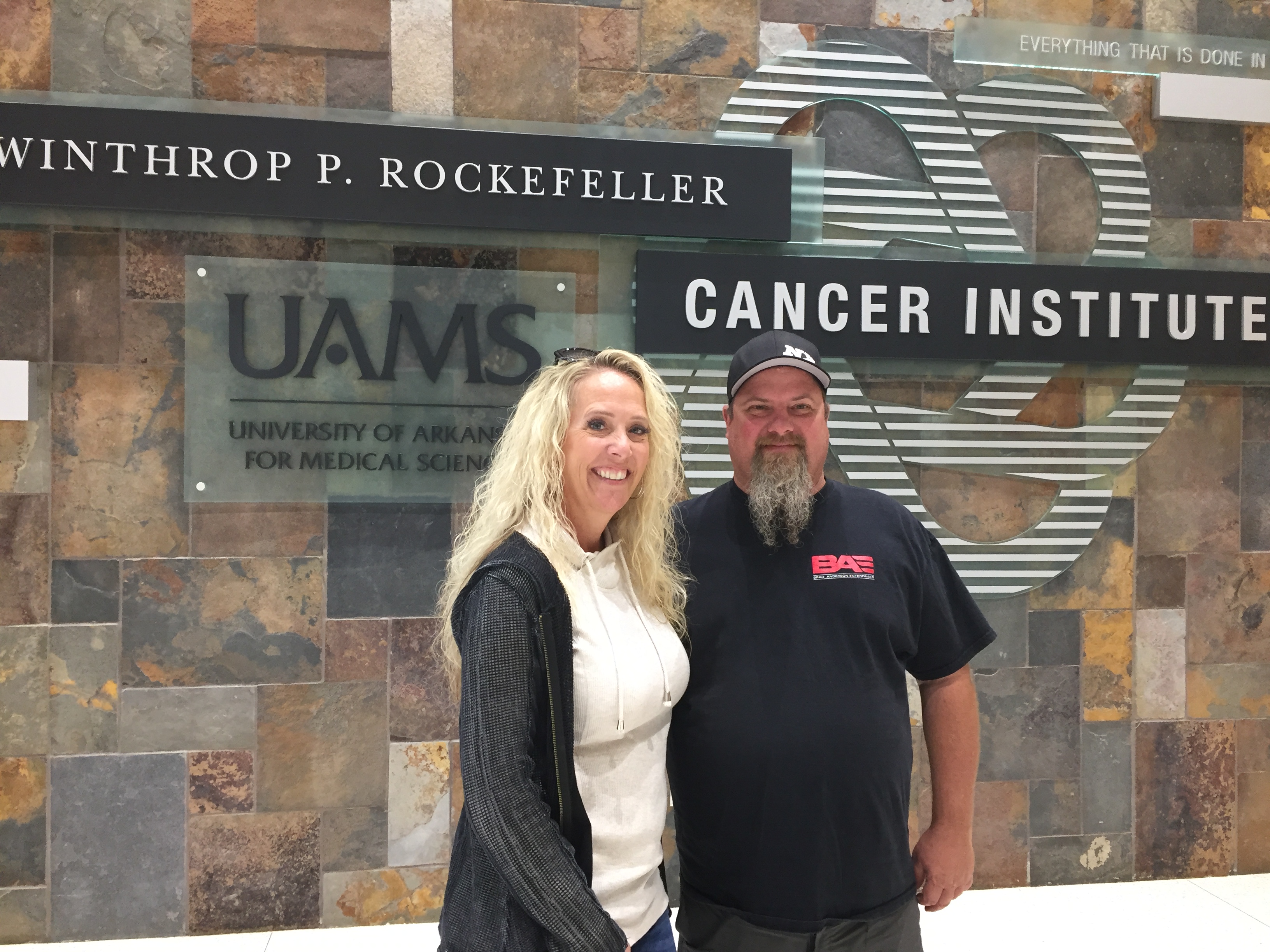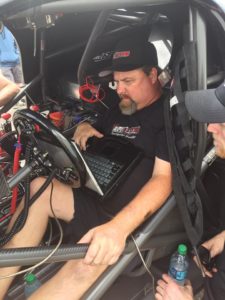Drag Racer, Specialty Mechanic Praises Treatment at Myeloma Center
| Drag racer and specialty mechanic Brian Macy, 49,was diagnosed with myeloma in June 2016. Just a little more than a year later, he was back on track, literally.
Macy, of Lake Havasu City, Arizona, owns Horsepower Connection, an automotive customization shop that specializes in electronic fuel injection programming and conversions of older domestic cars and boats for motor racing. He also tunes EFI motors and large horsepower drag race cars and street cars.
Upon seeking treatment at the UAMS Myeloma Center, Macy greeted his doctor by saying, “I’ve researched you and know all about you and what you do. But do you know what I do?” Macy asked, pointing to a photo of the car he races in the Pro Modified division.
“I told him, ‘That’s what I do and I’m going to drive that again,’” he recounted. “I also told him that he was cutting into my racing season,” he added, chuckling.
Unlike other patients with the rare blood-related cancer, Macy has not experienced any broken bones but did have a cracked pelvis and a large tumor in the lowest portion of his spine.
Before his myeloma diagnosis, “I really thought it was my sciatic nerve,” he said. “I kept going to this doctor in Arizona, complaining that my back hurt. It got so bad I wasn’t drag racing anymore and I could hardly work at that point.”
He was in so much pain when he and his wife, Heather, first arrived at UAMS he could barely walk. “I was determined to find the best place I could go to for treatment.”
A friend in Memphis, whose father had myeloma and was being treated at the Myeloma Center, suggested he come to UAMS. Macy’s treatment included chemotherapy and a tandem stem-cell transplant, completed in early 2017. By August, he was back behind the wheel and racing.
Macy is now in remission. He has not experienced any relapses and has not taken any medications for myeloma for more than two years.
“I’m clean with no residual trace of myeloma,” said Macy, who sees Sharmilan Thanendrarajan, M.D., at the Myeloma Center, part of the Winthrop P. Rockefeller Cancer Institute, for six-month checkups. His last checkup was in October.
“The care at the Myeloma Center has been great,” he said. “The system they have in place is wonderful.You get your information and results back so quickly. At other places, it can take two weeks to get your results back,but here you know what they are almost overnight.”
“Everyone, from the doctors and nurses down to those who drew blood, contributed in different ways. They are all great here at UAMS,” Macy said.
Visiting with other patients was also therapeutic for him.
“Everybody has a story and everybody is at different stages in their treatments,” Macy said. “It’s like you’re in this huge patient support group and you don’t even realize it.”
He appreciates that UAMS is as aggressive about eradicating myeloma as he is about driving and tuning souped-up race cars.
“They’re serious at the Myeloma Center,” Macy said.“The attitude is ‘We’re going to kill this disease and make it go away.’”


